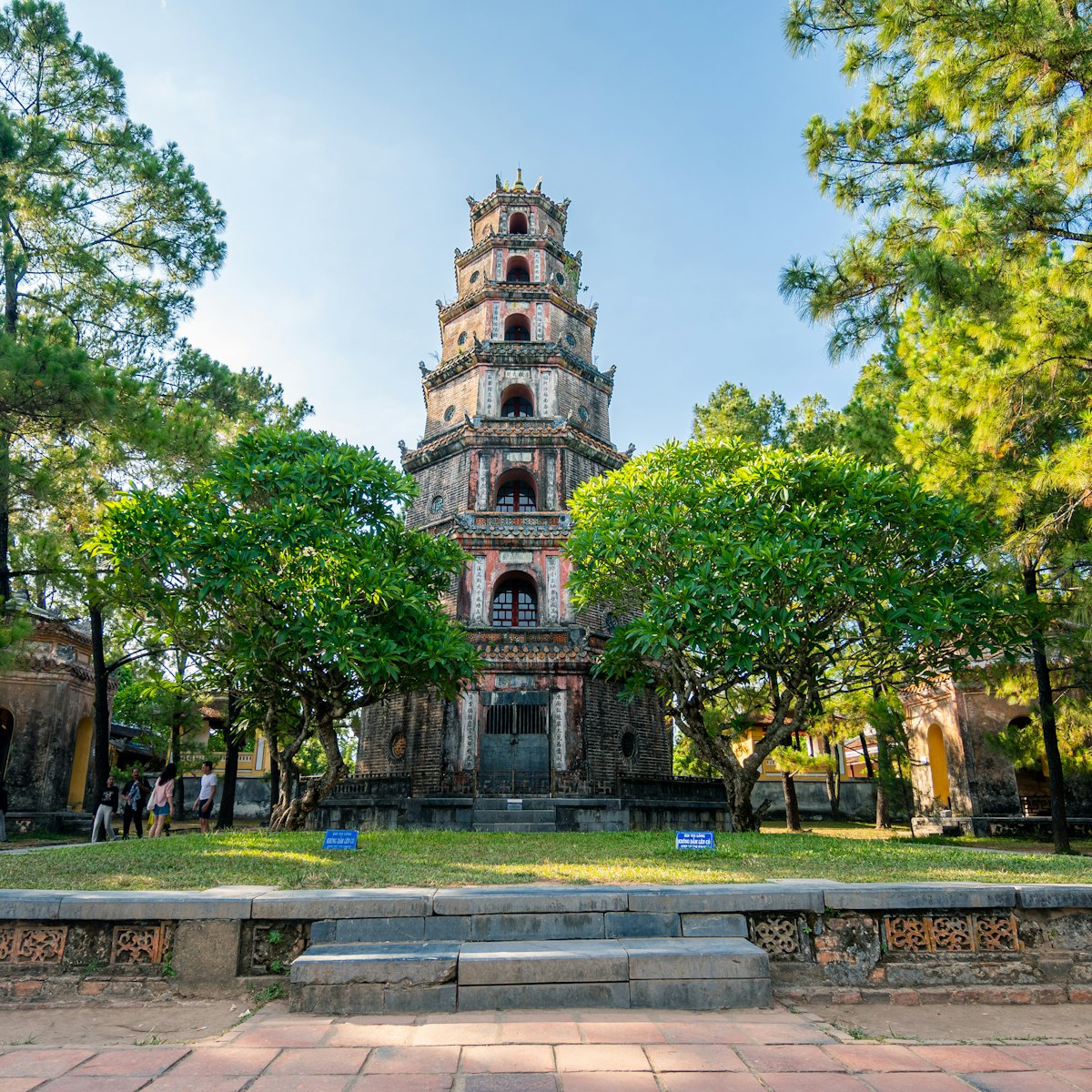This three-tiered esplanade was once the most important religious site in Vietnam, the place where the Nguyen emperors made animal sacrifices and elaborate offerings to the deity Thuong De. Ceremonies (last held in 1946) involved a lavish procession and a three-day fast by the emperor at the nearby Fasting Palace. The palace, located at the furthest end of the park, has photographs with English captions.
Since 2006, the ceremony has been re-enacted as part of the Festival of Hue. Nam Giao Esplanade is at the southern end of Ð Dien Bien Phu, about 2km from the railway tracks.





